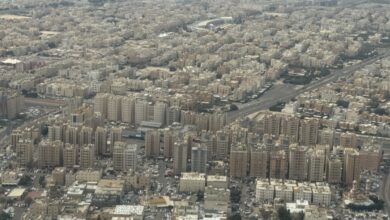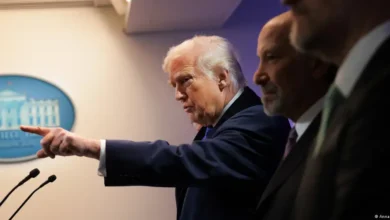Tensions mount as Trump keeps world guessing on U.S. role in Israel-Iran conflict

As the Israel-Iran conflict entered its seventh day on Thursday, U.S. President Donald Trump continued to keep the international community on the edge, declining to confirm whether the United States would join Israel’s strikes on Iranian nuclear sites.
Speaking to reporters outside the White House, Trump said, “I may do it. I may not do it. I mean, nobody knows what I’m going to do,” adding further ambiguity to an already volatile situation.
Later, Trump revealed that Iranian officials had expressed interest in holding talks in Washington, saying, “We may do that,” but then remarked, “It’s a little late” for diplomacy.
The Wall Street Journal reported that Trump had approved military attack plans on Iran but was delaying a final order, awaiting signals from Tehran on potentially backing down from its nuclear ambitions.
When asked about the potential collapse of the Iranian regime, Trump replied, “Sure, anything could happen.” Commenting on Iran’s heavily fortified Fordow nuclear site, Trump said: “We’re the only ones that have the capability to do it. But that doesn’t mean I’m going to do it — at all.”
Meanwhile, European powers were mobilizing diplomatic efforts. According to a German diplomatic source quoted by Reuters, the foreign ministers of Germany, France, and Britain are scheduled to meet with their Iranian counterpart in Geneva on Friday to press for guarantees that Iran’s nuclear program will remain strictly civilian in nature.
On the ground, the conflict is intensifying. Israel confirmed its air force struck Iran’s police headquarters, and military officials reported intercepting drones launched from Iranian territory into northern Israel and the Jordan Valley early Thursday. Meanwhile, Tehran residents clogged major highways, fleeing the capital in fear of further escalation.
Fordow, located near Qom and buried under a mountain, is considered nearly impervious to conventional strikes without U.S. support. Analysts say Israel may require American military assistance to neutralize it effectively.
Iran’s Supreme Leader Ayatollah Ali Khamenei, 86, issued a stern warning during a televised address —his first since Friday — stating that “any U.S. military intervention will undoubtedly be accompanied by irreparable damage,” vowing that “the Iranian nation will not surrender.”
Russian President Vladimir Putin, when asked to comment on a possible U.S.-Israel attempt to kill Iran’s Supreme Leader, responded tersely: “I do not even want to discuss this possibility. I do not want to.”
As the situation continues to escalate, Israeli jets have reportedly carried out three waves of airstrikes over the past 24 hours, targeting military and missile production facilities in Tehran and western Iran.
Meanwhile, Iran’s mission to the United Nations dismissed Trump as “a has-been warmonger clinging to relevance,” in a defiant message posted on X.
With diplomatic overtures, military threats, and regional tensions peaking, the next steps from Washington — and Tehran — could determine whether the conflict spirals into a broader war.












